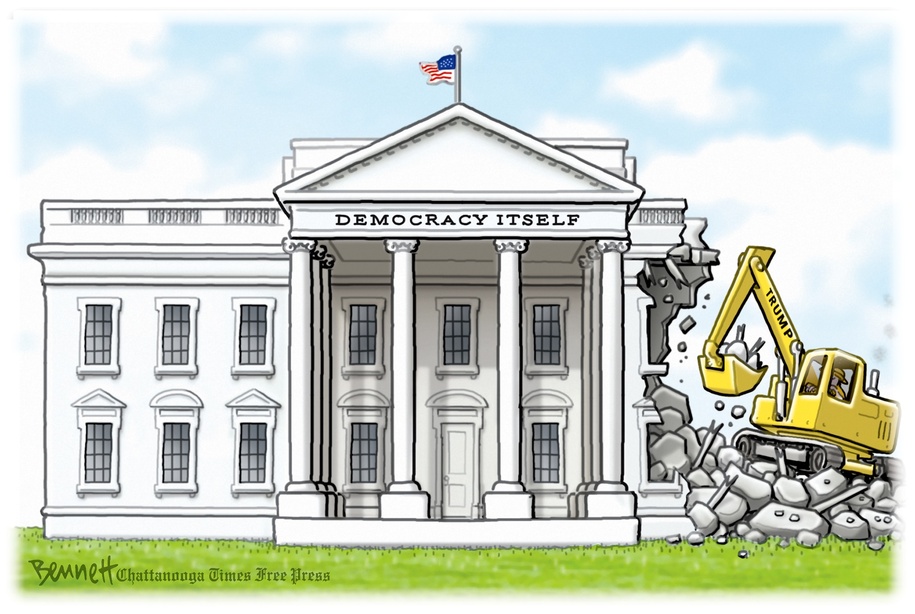A recent political cartoon by artist Clay Bennett has captured the frustrations of many Americans regarding the policies of former President Donald Trump. The cartoon, which features a critical yet humorous take on Trump’s time in office, resonates with a public increasingly disillusioned with the political landscape.
Bennett’s work presents a satirical reflection on the current state of American politics, particularly in the wake of contentious policies and decisions made during Trump’s administration. The cartoon serves as a visual commentary on how these choices have impacted the lives of ordinary citizens.
Public Reaction and Context
The sentiment expressed in Bennett’s cartoon echoes the feelings of a significant portion of the American populace. According to recent surveys, up to 300 million Americans have voiced their discontent with various aspects of Trump’s governance. This widespread disapproval highlights the growing divide in political opinions across the nation.
Political cartoons have long served as a medium for social critique, and Bennett’s latest piece is no exception. By using humor and irony, the artist encourages viewers to reflect on the consequences of political decisions. The cartoon not only entertains but also stimulates vital conversations about accountability and governance.
The timing of this cartoon is particularly poignant, as the nation prepares for upcoming elections. With many Americans feeling uncertain about the direction of their country, satirical works like Bennett’s provide a much-needed outlet for frustration.
The Role of Satire in Politics
Satire plays a crucial role in shaping public discourse, offering a lens through which complex political issues can be examined. Bennett’s work exemplifies this impact, serving both as entertainment and as a catalyst for dialogue about the current political climate.
In an era where misinformation can easily spread, political cartoons offer a grounded perspective. They distill complicated political narratives into accessible imagery and concise commentary. Bennett’s ability to convey deep-seated public sentiments through his art makes his work significant in contemporary discussions about governance and leadership.
As the political landscape continues to evolve, the relevance of satire remains steadfast. It provides a unique avenue for citizens to express their views while simultaneously holding leaders accountable. In this context, Bennett’s cartoon is more than just a piece of art; it is a reflection of a national mood that demands attention and action.
In conclusion, Clay Bennett’s political cartoon serves as a powerful reminder of the importance of satire in today’s society. With a nation divided on key issues, the ability of art to provoke thought and inspire change has never been more critical. As political debates heat up, the role of artists like Bennett will be vital in shaping public perception and discourse.






